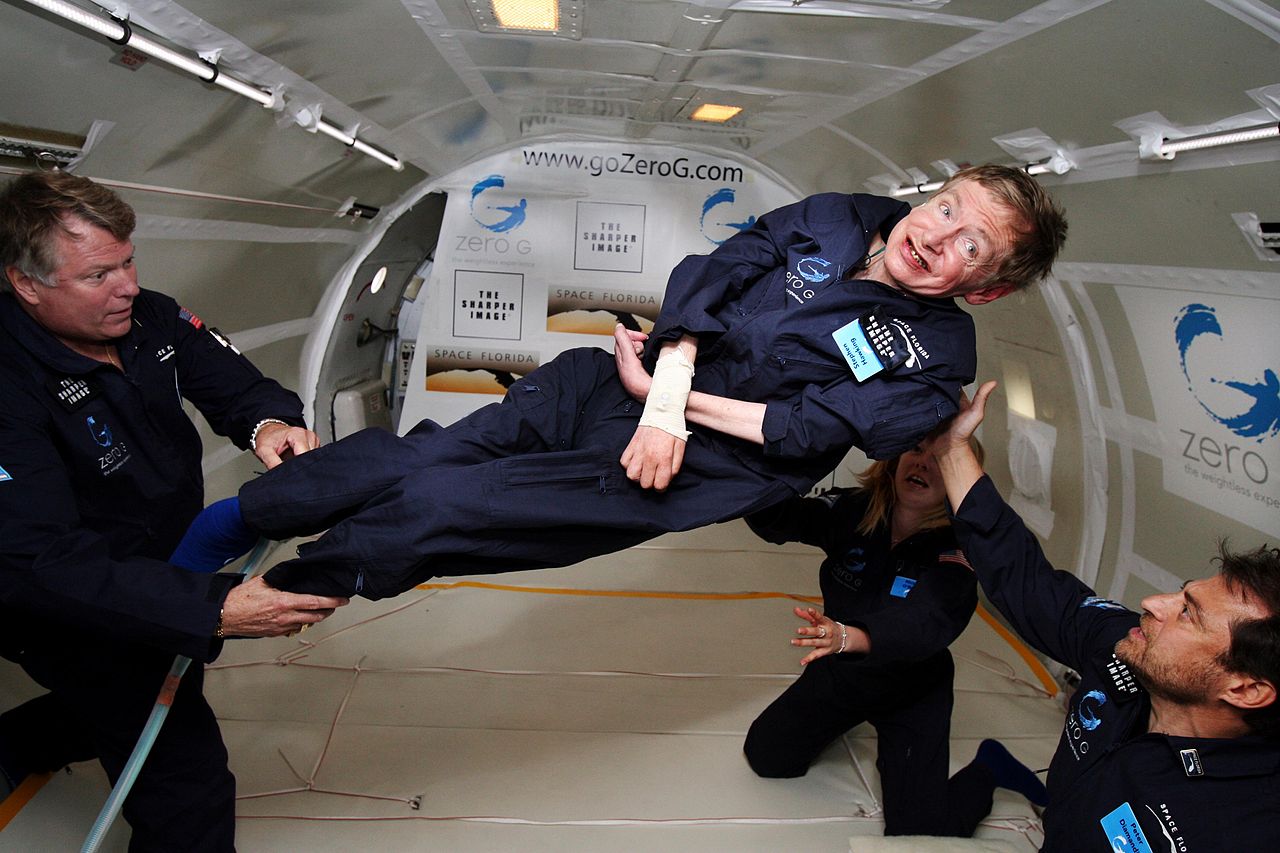Above photo: Stephen Hawking, 76, died on what would have been Albert Einstein’s 139th birthday and Pi Day, a national holiday celebrated by math nerds and geeks like. He left behind a legacy that rivals those of legends of astrophysics Einstein and Sir Isaac Newton. Courtesy of Wikimedia Commons
By Michael Moore Jr.
If I was a little better at math, I might be an astrophysicist.
Much of my childhood was spent sprawled out on the concrete of my driveway gazing up at a starry sky. To this day, my favorite birthday present of all time remains the telescope I received from my father in fifth grade.
My superheroes growing up were athletes and scientists. Muhammad Ali was my Batman and Albert Einstein was Superman. Ali was, well, Ali – and Einstein’s mental capacity and acumen can be described as nothing short of super.
Stephen Hawking was among my “Justice League” of boxing stars and theoretical physicists. He was the living embodiment of everything that inspires and motivates me to be curious about the world around me.
He died Wednesday.
It was Pi Day – the annual celebration of the mathematical constant and irrational number best known for its utilization in finding the area of a circle. For the uninitiated, it’s observed on March 14 due to the first three significant digits of Pi being 3.14.
The most renowned physicist of our time died on the one day of the year that mathematicians get to openly celebrate their geekiness and love for numbers.
Hawking was born on the 300th anniversary of Galileo’s death and died on what would have been Einstein’s 139th birthday. Both he and Einstein were 76 when they passed away.
For many years he held the position of Lucasian professor of mathematics at the University of Cambridge, the same post held by Sir Isaac Newton 300 years earlier.
The stars are oddly poetic sometimes.
During his 76 years on this planet, Hawking made several contributions to our knowledge of the universe, most notably regarding black holes.
But I hypothesize that his single most lasting achievement may come by way of how many countless young scientists he inspired.
I’m no astrophysicist: Eventually I traded in my telescope for a notepad (figuratively speaking, because notepads are cheap and telescopes are not.)
But the giants of the field – people like Hawking, Einstein and Newton – have left lasting impressions on me. Growing up I always wanted to be a scientist, professional athlete or writer.
Somewhere along the way I realized that my calling was to write about science and sports, not to participate in them.
If it weren’t for people like Hawking, I would never have gotten into journalism. It sounds strange to say, but it’s true. My love of being a reporter was born out of my love for science communication and education.
I yearned, and still yearn, to express the beauty of physics, examine the marvels of the natural world, and untangle the complexities of climate change to readers everywhere.
Sometimes it’s only possible to see and pursue your passions while standing on the shoulders of giants.
There are other living physicists who deserve just as much credit and recognition for their scientific achievements. People like Leonard Susskind, Edward Whitten and Roger Penrose go largely ignored by popular culture when they are just as accomplished.
Hawking wasn’t Einstein. The radiation that he theorized is emitted from black holes will never hold the same weight as general or special relativity. He never won a Nobel prize.
But Hawking captures the public’s imagination in a way that no scientist since Einstein has. And that, in itself, is special.
He popularized science, and he glorified intellectualism. He was more than a scientist: He was a superhero for every little boy and girl with a telescope.
His adviser at Cambridge, cosmologist Dennis W. Sciama, once called Hawking’s thesis “the most beautiful paper in the history of physics.”
He was one of its most beautiful minds and the world took notice.
He once said this:
“Remember to look up at the stars and not down at your feet. Try to make sense of what you see and wonder about what makes the Universe exist. Be curious. And however difficult life may seem, there is always something you can do and succeed at. It matters that you don’t just give up.”
I’ve been looking up at the stars ever since.



